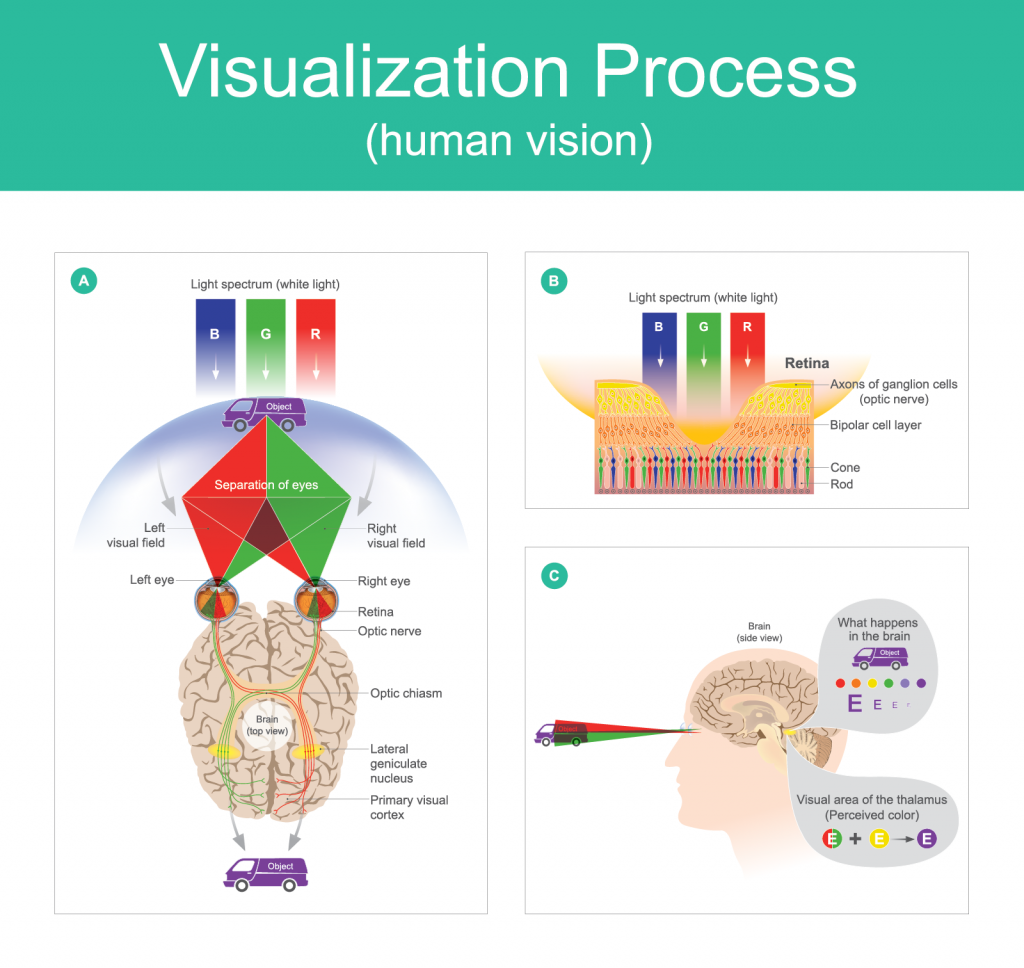Mind blanking is an increasingly recognized phenomenon that many individuals encounter, characterized by sudden lapses in thought when the mind feels completely empty. Recent research has highlighted mind blanking as a legitimate occurrence in cognitive science, suggesting that it taps into the neural mechanisms of our brain activity. While commonly dismissed as mere forgetfulness, experts argue that mind blanking warrants closer examination as it reflects significant aspects of consciousness research. This state poses intriguing questions, especially concerning individuals with attention deficits, who may experience these mental pauses more acutely. As scientists delve deeper into understanding the brain’s complex workings, the exploration of mind blanking may soon shed light on our consciousness and cognitive behaviors.
Also referred to as cognitive stasis or mental inertia, the experience of momentarily ‘zoning out’ plagues many individuals, leaving them perplexed by the abrupt halts in their cognitive flow. This peculiar state, which can lead to a complete unavailability of thoughts, has sparked curiosity among researchers investigating various aspects of neural cognition. Understanding these episodes of mental vacancy can provide valuable insights not only into everyday cognitive experiences but also into deeper phenomena associated with attention and awareness. Although often fleeting, these moments where the mind seemingly switches off present an intriguing intersection of neuroscience and psychological inquiry. As such, the exploration of these mental lapses might hold the key to unraveling more complex aspects of human cognition.
Understanding Mind Blanking: A Cognitive Phenomenon
Mind blanking, as a psychological occurrence, raises intriguing questions about the nature of consciousness and cognitive processes. This phenomenon is characterized by an abrupt pause in thought, where individuals find themselves momentarily without any mental content. As researchers in cognitive science explore the intricate workings of the brain, it becomes clearer that mind blanking is not merely a fleeting lapse in attention but rather a defined state of neural activity. The disconnect in thought processes resonates with theories in attention deficit research, suggesting that our brains can sometimes shut off the stream of consciousness, leading to an experience of complete mental emptiness.
The significance of mind blanking extends beyond everyday experiences; it taps into the depths of brain activity and consciousness research. When we consider the neural mechanisms at play, several regions of the brain, particularly those involved in memory and decision-making, exhibit altered activity during these blank moments. Understanding how periods of mind blanking are distinct from mind wandering can offer insights into addressing attention issues. Notably, researchers have identified a correlation between mind blanking occurrences and certain conditions like attention-deficit/hyperactivity disorder (ADHD), underscoring the importance of this phenomenon in broader cognitive discussions.
The Neural Mechanisms Behind Mind Blanking
Recent studies into the neurological underpinnings of mind blanking reveal a fascinating interplay between different brain regions. Researchers have observed changes in the supplementary motor cortex and hippocampus, which are crucial for movement planning and memory, respectively, during these episodes. These findings suggest that mind blanking may involve specific neural mechanisms that diverge from those typically engaged during conscious thought. By employing advanced imaging techniques, scientists have begun to paint a clearer picture of how brain activity patterns shift when individuals report experiencing nothing on their minds, indicating that mind blanking is a physiological reality rather than just a psychological experience.
Further exploration into electrical brain activity, particularly through electroencephalogram (EEG) readings, indicates that certain brain areas can enter states reminiscent of sleep during moments of mind blanking. This sleep-like state may offer clues as to why some individuals, especially those with ADHD, experience these blank moments more frequently. Understanding these neural connections not only enhances our comprehension of cognitive performance but also invites questions around the nature of consciousness and memory retrieval. Are mind blanking episodes merely lapses in attention, or do they reflect deeper cognitive processes that merit further investigation?
Mind Blanking vs. Mind Wandering: Distinct States
While both mind blanking and mind wandering are experiences of altered attention states, they represent vastly different cognitive phenomena. Mind wandering typically involves the mind filing through various past experiences and fictional thoughts, allowing for creative thinking but often at the expense of focus. In contrast, mind blanking leaves individuals with a complete absence of thought, presenting a unique challenge for researchers in cognitive science. The recognition of these differences is critical, particularly in developing strategies to enhance focus and manage cognitive load in our increasingly distracted world.
Understanding how mind blanking operates alongside mind wandering can open avenues for practical applications in mental health and cognitive performance. By distinguishing between these two states, we can better understand their potential impacts on day-to-day life, particularly in those susceptible to cognitive disruptions such as ADHD. As we expand our understanding of these phenomena, it may become possible to devise interventions or techniques that harness the advantages of mind wandering while minimizing the disruptions caused by mind blanking.
The Impact of Mind Blanking on Daily Life
Experiencing mind blanking can be disorienting, especially in crucial moments that require focused thought, such as during exams or important discussions. Individuals frequently report feelings of frustration or confusion when they find their thoughts suddenly dissolving into silence. The prevalence of these episodes can vary widely from person to person, which has led to a greater interest in understanding why some individuals may be more prone to mind blanking than others. Cognitive scientists are increasingly conducting studies to further investigate this intricate relationship between our mental states and daily tasks.
In practical terms, acknowledging the role of mind blanking in our cognitive experiences can lead to improved strategies for managing attention and productivity. Techniques such as mindfulness and cognitive restructuring may offer individuals coping mechanisms to regain focus when confronted with mind blanking episodes. By fostering awareness of these moments, individuals can learn to navigate their thought processes with greater ease, potentially transforming frustrating experiences into opportunities for rest and cognitive recalibration.
Future Research Directions in Mind Blanking
The study of mind blanking is still in its early stages, with significant gaps remaining in our understanding of this cognitive phenomenon. Researchers acknowledge that further empirical studies are necessary to fully unveil the intricacies of mind blanking, including its duration, triggers, and potential variations among individuals. Questions surrounding whether such episodes can be utilized as a tool for enhancing creativity or problem-solving are also areas ripe for exploration. The increasing focus on mind blanking within neuroscience and psychology reflects a broader trend toward investigating consciousness and its many states.
As the research community continues to unravel the complexities of mind blanking, it is essential to embrace interdisciplinary approaches that incorporate insights from cognitive science, psychology, and neuroscience. Collaborative efforts among researchers will strengthen our understanding of mind blanking and its impact on cognitive function. Ultimately, this line of inquiry may provide valuable breakthroughs that not only elucidate the mechanics of thought processes but also contribute to developing strategies for mitigating the hindrances posed by attention-related challenges.
Mind Blanking and Attention Deficit Disorders
Interestingly, recent findings indicate that mind blanking is particularly prevalent among individuals diagnosed with attention-deficit/hyperactivity disorder (ADHD). This correlation raises questions regarding the role of cognitive deficits in both the frequency and nature of mind blanking. By exploring the intersection between ADHD and episodes of mental blankness, researchers hope to shed light on the specific challenges faced by these individuals in maintaining focus and attention. Understanding the unique neural mechanisms at play in ADHD can guide interventions aimed at improving cognitive function and reducing the disruptive effects of mind blanking.
Moreover, understanding the nuances of how mind blanking presents itself in individuals with ADHD could lead to tailored therapeutic approaches that take into account the specific neurodevelopmental factors influencing their cognitive experience. Recognizing mind blanking as a legitimate facet of ADHD may foster empathy and support for those navigating these challenges. Future research will play a vital role in identifying effective strategies for individuals to manage and mitigate mind blanking, ultimately enhancing their cognitive well-being.
Mind Blanking in Sleep and Dream Research
In the realm of sleep research, the phenomenon of mind blanking also intersects with intriguing results around dreaming. Reports of ‘white dreams’—instances where individuals recall dreaming but cannot access the content—reflect similarities to mind blanking experiences. Investigating these concepts together may unveil compelling insights into the similarities and distinctions between cognitive states during wakefulness and sleep. Understanding how mind blanking manifests across different states of consciousness can significantly contribute to our broader grasp of mental processes.
Engaging with the sleep community can lead to further exploration of how neural mechanisms involved in both sleeping and waking moments contribute to the sensation of mind blanking. Positive implications may arise from this integrated understanding that enhance therapies for sleep disorders and cognitive-related dysfunctions. As we expand our exploration of both sleep and waking consciousness, bridging the gap could pave the way for novel approaches to mental clarity, improving both cognitive performance and overall well-being.
Implications of Mind Blanking for Mental Clarity
The acknowledgment of mind blanking as a definable state opens doors for developing practices that could foster mental clarity. By recognizing that blank moments are a natural part of cognitive functioning, individuals can approach these experiences with less anxiety and greater acceptance. Strategies such as mindfulness, cognitive flexibility training, and structured problem-solving may help individuals navigate through episodes of mind blanking, transforming potential frustrations into opportunities for introspection and clarity.
Encouraging a cultural shift toward understanding mind blanking as part of the cognitive spectrum could be beneficial for individuals in both personal and professional contexts. By normalizing conversations around these phenomena, we might create environments that leverage mental blankness constructively. Fostering environments that allow for pauses in thought can facilitate creativity, innovation, and overall mental well-being, ultimately leading to a deeper appreciation of the complexities of human thought and consciousness.
Frequently Asked Questions
What is mind blanking and how does it relate to cognitive science?
Mind blanking is a phenomenon where an individual experiences a temporary cessation of thoughts. It is recognized within cognitive science as a distinct state of consciousness, contributing to our understanding of brain activity during moments of thought interruption.
Can mind blanking be linked to attention deficit disorders?
Yes, research indicates that individuals with attention-deficit/hyperactivity disorder (ADHD) may be more prone to episodes of mind blanking. This connection highlights the need for more exploration into the neural mechanisms underlying cognition and attention.
What are the neural mechanisms associated with mind blanking?
Mind blanking involves unique patterns of brain activity, particularly in areas like the supplementary motor cortex and hippocampus. Studies show that these brain regions exhibit decreased activity during mind blanking episodes.
How does mind blanking differ from other cognitive phenomena like mind wandering?
Mind blanking is distinct from mind wandering as it represents a complete halt in thought flow, whereas mind wandering refers to thoughts that stray from a task. Both phenomena are significant in consciousness research.
Is mind blanking a common experience, and how often does it occur?
Research suggests that mind blanking occurs in individuals 5% to 20% of the time throughout the day. Its frequency can vary based on individual factors, including cognitive workload and attention levels.
Are there different types of mind blanking, and can it be experienced voluntarily?
There are still many unanswered questions about mind blanking, including whether different types exist and if some instances occur voluntarily. Ongoing research aims to clarify these aspects.
What role does mind blanking play in daily life and performance?
Mind blanking can affect daily cognitive performance and might occur during moments of high performance or flow states. Understanding its implications can help in managing attention and improving focus.
What is the relationship between sleep and mind blanking?
Some studies suggest that mind blanking may enter a sleep-like state during episodes, similar to ‘white dreams’ where individuals remember dreaming but cannot access content. This relationship raises intriguing questions about consciousness and cognitive processes.
How can understanding mind blanking improve cognitive studies?
A deeper understanding of mind blanking can enhance research in cognitive science by providing insights into attention mechanisms, conscious awareness, and the overall functioning of the brain during both wakefulness and sleep.
What future research is needed on mind blanking?
Future research should focus on the duration of mind blanking episodes, potential different types, voluntary experiences, and a comprehensive understanding of the underlying neural mechanisms contributing to this phenomenon.
| Key Points |
|---|
| Mind blanking is a legitimate cognitive phenomenon acknowledged by researchers. |
| Recent studies suggest that mind blanking represents a distinct state of consciousness. |
| Mind blanking occurs when thoughts abruptly stop, leading to an experience of thinking about nothing. |
| Brain scans show unique activity patterns associated with mind blanking. |
| Individuals experience mind blanking 5% to 20% of the time, more common in those with ADHD. |
| More research is needed to understand the duration, types, and mechanisms of mind blanking. |
Summary
Mind blanking is a fascinating and legitimate cognitive phenomenon that many individuals experience throughout their daily lives. Recent research indicates that this state is distinct from similar occurrences like mind wandering and represents unique neural patterns in the brain. Recognizing mind blanking as a critical area of study can lead to a deeper understanding of its implications in cognitive science, potentially uncovering how it affects mental function and performance. As interest in this topic grows, ongoing research will hopefully unravel the complexities surrounding mind blanking and its relationship with consciousness.



